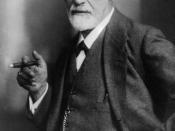The debate regarding the use of animals in experiments has come under increasing public and political attention throughout the 1980?s and 1990?s. Many objections have been raised against the once accepted scientific procedures by all sectors of society. There are many arguments for and against the use of animals in scientific experimentation most of which revolve around both practical and ethical issues.
There are many arguments, which support the use of animals in experiments. According to Cardwell (1996) animals are studied simply because they are fascinating to study, they can be used in research where humans can't due to the restrictions placed on human research by the BPS guidelines, variables can be controlled precisely when using animals and as they have a short lifespan their development and offspring can be observed; several generations can be bred in a short period of time which is particularly useful in studying genetic characteristics (Coolican, 1994).
Those against animal experimentation however, would argue that the animals suffer during research. This has resulted in two fundamental questions arising. Firstly, the question of whether animals can feel pain and so indeed suffer, and secondly, whether anything can justify the animals? subjection to any suffering.
Descartes in 1637 pronounced that non-human animals were like machines. They had no thoughts and feelings. Descartes considered animals "thoughtless brutes", automata or machines. Fontaine wrote in 1738: "They said the animals were clocks; that the cries they emitted when struck were only the noise of a little spring that had been touched but that the whole body was without feeling...they made fun of those who pitied the creatures as if they felt pain.? (in Rachels, James 1990) Descartes later modified his ideas to believe that animals are conscious of some things, such as hunger and pain, but he maintained that...


